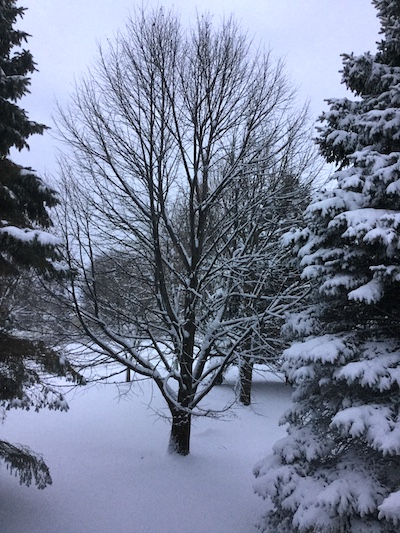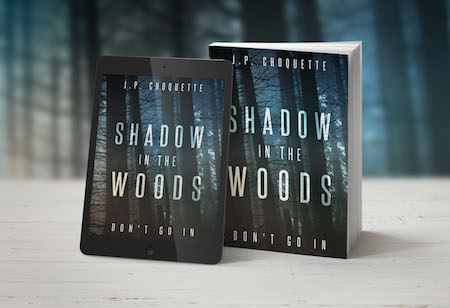
Today we have a guest blogger, all the way from Vermont: JP Choquette. I ran into her on one of those many closed Facebook groups, and I’m glad I did. Not only did I find a neat person who writes suspense novels and the cases of a cool private eye, Tayt Waters, but I also found a very interesting blogger.
One of the wonderful things she wrote about not long ago was ecotherapy. I’d never heard of that term before, but soon realized that ecotherapy is really something we all know about. We just don’t think of it as therapy.
So without further ado, I’ll let JP take over and tell us all about this simple and effective tool to improve our lives.
***
Do you suffer from anxiety or depression? Or just have that general sense of malaise more days than not? If so, you might benefit from the healing (and free!) practice of ecotherapy.
What’s ecotherapy? It’s basically nature immersion. I first learned about it as a valid treatment used by counselors and psychotherapists several years ago while researching an article for Urban Farm magazine. My interest sparked the article and the research conducted for that article led me to better understand this unique form of therapy. If you live in a winter climate like me, you’re likely half-starved for any green growing things about this time of the year. March is a cruel month in northern areas because while you know that spring is coming, it still seems an impossibility as more snow falls outside your window.
Ecotherapy was the basis for my latest suspense novel, Shadow in the Woods, in which two mental health counselors take a small group of clients into the backwoods of Vermont for an intensive ecotherapy weekend retreat. When the group must take cover in a sinister cave due to an unexpected and violent storm, the trip turns into a nightmare. That initial article I wrote on this topic was the kernel of the idea for what later became this book.
Happily, you can enjoy all the benefits of ecotherapy without any of the drama. This practice doesn’t require special outdoor gear, hours and hours spent in nature or even leaving one’s house. Read on for five easy ways that you can experience the little “lift” that ecotherapy offers today.
5 Easy & Free Ways to Enjoy Ecotherapy Today
- Tune into YouTube. Enjoy listening to the ocean waves crash? Prefer the sound of a babbling brook, a thunderstorm or bird chatter? YouTube offers a lot of great videos that can be the soundtrack of your day. I frequently listen to thunderstorms or horse hooves clopping along while working on my suspense novels. Whether you like the sound of a crackling fire or the surf, you’ll find a wealth of options on YouTube.
- Care for a plant. Ecotherapy doesn’t have to be this “big thing” that takes hours and hours of your time. Something as simple as caring for a houseplant, tending its soil, watering it and refreshing it’s leaves with a damp rag can benefit one’s mental health. Nurturing acts make us happy. Adding in the care of a green, growing thing makes the act even more pleasurable.
- Walk or jog. Despite my best intentions to exercise outdoors nearly every day, even in the dead of winter, I usually wimp out. Walking or jogging on freezing cold, dark mornings is just too much to ask sometimes. On those days, I fire up my laptop and enjoy “treadmill TV,” special videos that other walkers and joggers create. Choose to walk along the cliffs of Dover, the beaches of Maui or the wild trails of Oregon. Best part? You don’t have to bundle up to enjoy, just slip on your sneakers and get going.
- Hang a photo. While researching the article that I wrote on ecotherapy, I learned that something as simple as looking at a picture of nature can improve our wellbeing and our general sense of health. Is this one of the reasons that so many hospitals feature nature scenes? Indeed, studies have proven that looking at scenes of natural settings can increase the speed of healing.
- Get outside. If it’s not unbearably cold and/or dark, go for a walk, a ski, a snowshoe or a short hike outdoors. The fresh air, sunshine (even through gray clouds) and sight of trees and other natural elements have been proven to increase our endorphins.
All of us can use an emotional lift from time to time. In addition to the mental health benefits you’ll enjoy from practicing ecotherapy regularly, you’ll be positively impacting your physical health as well. I hope that one or more of these tips will help you. I’d love to hear about the ways in which you incorporate ecotherapy in your days. Please leave a comment below.
***
Thanks, JP! I’ve started spending time with virtual fireplaces on YouTube!
Here’s JP’s book featuring ecotherapy:
Get it at Amazon!
And here’s a bit about herself:
J.P. Choquette lives and writes in northwestern Vermont which is still snow-covered at present. She practices ecotherapy as frequently as possible while working on her next suspense novel. Learn more about her by visiting http://www.jpchoquette.net
Comments are always welcome! And until next time, enjoy a stint with nature – virtual or real!
Share This!
